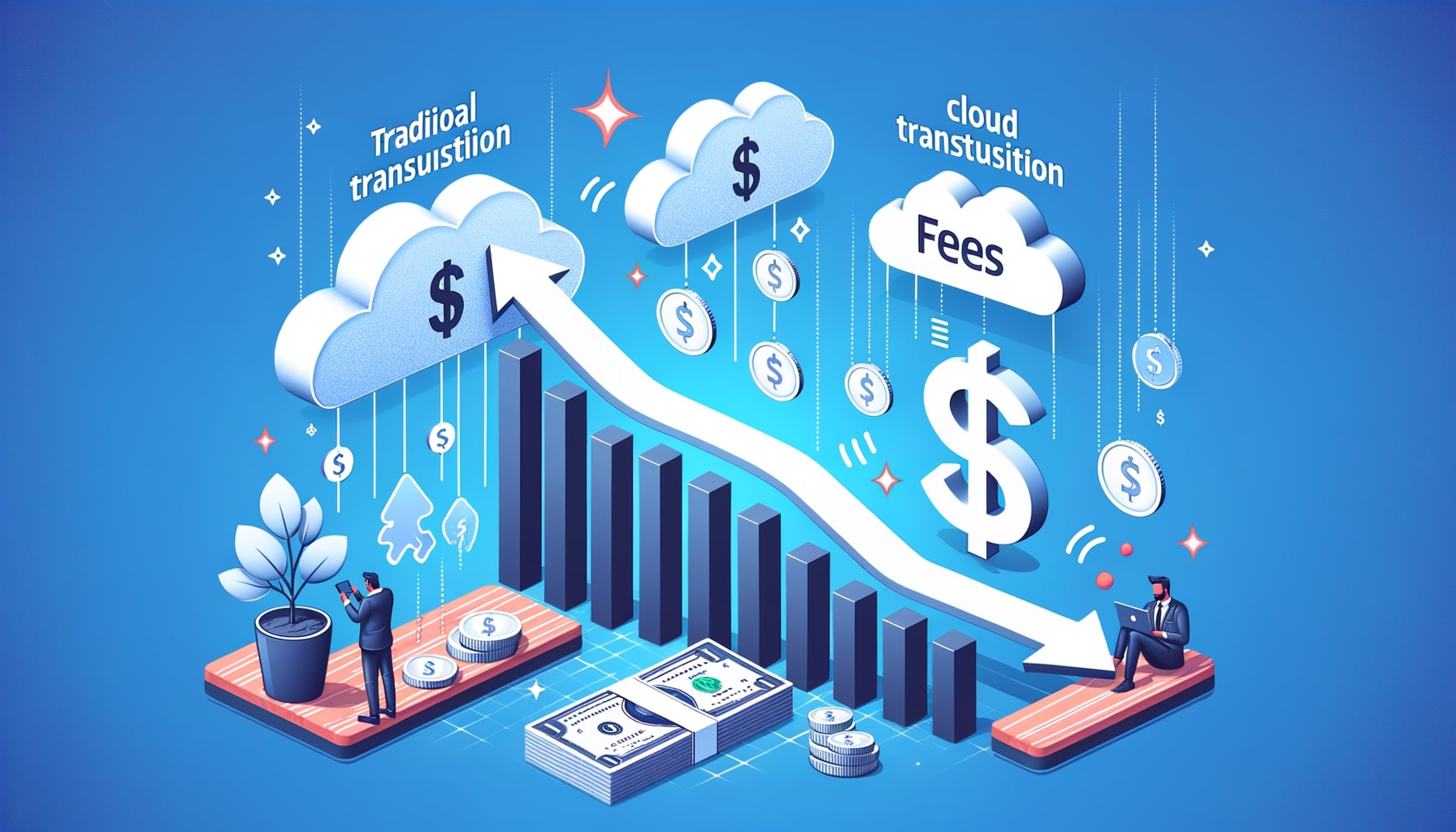How to Securely Process Credit Card Payments in the Cloud
In today’s digital age, credit card payments have become the norm for businesses of all sizes. With the increasing popularity of cloud computing, many organizations are now opting to process credit card payments in the cloud. However, with this convenience comes the need for robust security measures to protect sensitive customer data.
This article will explore the various aspects of securely processing credit card payments in the cloud, including the benefits, compliance with industry standards, choosing a reliable cloud service provider, implementing strong authentication and access controls, encrypting data, monitoring and auditing systems, implementing fraud detection and prevention measures, and best practices for secure credit card processing.
The Benefits of Cloud-Based Credit Card Processing
Cloud-based credit card processing offers several advantages over traditional on-premises solutions. Firstly, it provides businesses with the flexibility to scale their operations as needed, allowing them to handle increased transaction volumes during peak periods without investing in additional hardware or infrastructure. This scalability is particularly beneficial for e-commerce businesses that experience seasonal fluctuations in sales.
Secondly, cloud-based solutions offer enhanced accessibility, allowing businesses to process credit card payments from anywhere with an internet connection. This is especially advantageous for organizations with multiple locations or remote employees, as it enables centralized management and reduces the need for physical infrastructure at each location.
Furthermore, cloud-based credit card processing solutions often come with built-in security features and regular updates, ensuring that businesses stay up-to-date with the latest security measures without the need for manual intervention. This can help organizations stay ahead of emerging threats and minimize the risk of data breaches.
Ensuring Compliance with Payment Card Industry Data Security Standard (PCI DSS)
When processing credit card payments, businesses must comply with the Payment Card Industry Data Security Standard (PCI DSS). This set of security standards is designed to protect cardholder data and ensure the secure handling of credit card information. Failure to comply with PCI DSS can result in severe penalties, including fines and loss of customer trust.
To ensure compliance with PCI DSS in the cloud, businesses should choose a cloud service provider that is PCI DSS certified. This certification demonstrates that the provider has implemented the necessary security controls and processes to protect cardholder data. Additionally, businesses should regularly assess their own compliance with PCI DSS and conduct vulnerability scans and penetration tests to identify and address any potential security vulnerabilities.
Choosing a Reliable Cloud Service Provider for Credit Card Processing
Selecting a reliable cloud service provider is crucial for securely processing credit card payments in the cloud. When evaluating potential providers, businesses should consider factors such as their security certifications, track record, reputation, and customer reviews. It is also important to assess the provider’s data protection measures, including encryption, access controls, and data backup and recovery processes.
Additionally, businesses should ensure that the cloud service provider offers a Service Level Agreement (SLA) that guarantees a certain level of uptime and data availability. This is particularly important for credit card processing, as any downtime or data loss can result in financial losses and damage to the organization’s reputation.
Implementing Strong Authentication and Access Controls in the Cloud
One of the key aspects of secure credit card processing in the cloud is implementing strong authentication and access controls. This involves verifying the identity of users and granting them appropriate access privileges based on their roles and responsibilities.
To achieve this, businesses should implement multi-factor authentication (MFA), which requires users to provide multiple forms of identification, such as a password and a unique code sent to their mobile device. This adds an extra layer of security and makes it more difficult for unauthorized individuals to gain access to sensitive data.
Furthermore, businesses should enforce the principle of least privilege, which means granting users the minimum level of access necessary to perform their job functions. This reduces the risk of unauthorized access and limits the potential damage in case of a security breach.
Encrypting Credit Card Data in Transit and at Rest
Encrypting credit card data is essential for protecting it from unauthorized access. Encryption involves converting sensitive information into an unreadable format that can only be decrypted with a specific key. This ensures that even if the data is intercepted or stolen, it remains unintelligible to unauthorized individuals.
When processing credit card payments in the cloud, businesses should ensure that all data is encrypted both in transit and at rest. This means that data should be encrypted when it is being transmitted over the internet and when it is stored on the cloud service provider’s servers.
To achieve this, businesses should use secure communication protocols, such as Transport Layer Security (TLS), to encrypt data in transit. Additionally, they should employ strong encryption algorithms, such as Advanced Encryption Standard (AES), to encrypt data at rest. It is also important to regularly update encryption keys and ensure that they are stored securely.
Monitoring and Auditing Cloud-Based Credit Card Processing Systems
Monitoring and auditing are crucial components of secure credit card processing in the cloud. These activities help businesses detect and respond to security incidents, identify vulnerabilities, and ensure compliance with industry standards.
Businesses should implement robust monitoring tools that provide real-time visibility into their cloud-based credit card processing systems. These tools should monitor network traffic, system logs, and user activities to identify any suspicious or unauthorized behavior. Additionally, businesses should establish incident response procedures to address security incidents promptly and minimize the impact on their operations.
Regular audits should also be conducted to assess the effectiveness of security controls and identify any gaps or weaknesses. These audits can be performed internally or by third-party organizations specializing in security assessments. The results of these audits should be used to improve security measures and ensure ongoing compliance with industry standards.
Implementing Fraud Detection and Prevention Measures in the Cloud
Fraud detection and prevention are critical for secure credit card processing in the cloud. As cybercriminals become increasingly sophisticated, businesses must implement robust measures to identify and mitigate fraudulent activities.
One effective approach is to implement machine learning algorithms that can analyze large volumes of transaction data and identify patterns indicative of fraudulent behavior. These algorithms can detect anomalies and flag suspicious transactions for further investigation. Additionally, businesses should implement real-time transaction monitoring to identify and block fraudulent transactions as they occur.
Furthermore, businesses should regularly update their fraud prevention measures to stay ahead of emerging threats. This includes staying informed about the latest fraud trends and collaborating with industry peers and law enforcement agencies to share information and best practices.
Best Practices for Securely Processing Credit Card Payments in the Cloud
To ensure the secure processing of credit card payments in the cloud, businesses should follow a set of best practices. These practices include:
- Regularly update software and systems: Keeping software and systems up-to-date is crucial for addressing security vulnerabilities and protecting against emerging threats. Businesses should regularly apply security patches and updates provided by their cloud service provider.
- Conduct regular security awareness training: Employees play a critical role in maintaining the security of credit card processing systems. Businesses should provide regular security awareness training to educate employees about best practices, such as strong password management, recognizing phishing attempts, and reporting suspicious activities.
- Implement data loss prevention measures: Data loss prevention (DLP) measures help businesses prevent the unauthorized disclosure of sensitive data. This includes implementing policies and technologies that monitor and control the movement of data within the organization and prevent it from being transmitted or stored in unauthorized locations.
- Regularly backup data: Regular data backups are essential for ensuring business continuity and recovering from data loss incidents. Businesses should implement automated backup processes and regularly test the restoration of data to ensure its integrity and availability.
- Establish incident response procedures: In the event of a security incident, businesses should have well-defined incident response procedures in place. These procedures should outline the steps to be taken to contain the incident, investigate its cause, mitigate the impact, and restore normal operations.
- Engage third-party security experts: Businesses can benefit from engaging third-party security experts to conduct regular security assessments and penetration tests. These experts can identify vulnerabilities and provide recommendations for improving security measures.
FAQs
Q.1: Is it safe to process credit card payments in the cloud?
Yes, it is safe to process credit card payments in the cloud if proper security measures are implemented. Businesses should choose a reliable cloud service provider that is PCI DSS certified, implement strong authentication and access controls, encrypt credit card data in transit and at rest, monitor and audit systems, and implement fraud detection and prevention measures.
Q.2: What is PCI DSS?
PCI DSS stands for Payment Card Industry Data Security Standard. It is a set of security standards designed to protect cardholder data and ensure the secure handling of credit card information. Businesses that process credit card payments must comply with PCI DSS to avoid penalties and maintain customer trust.
Q.3: How can businesses choose a reliable cloud service provider for credit card processing?
When choosing a cloud service provider for credit card processing, businesses should consider factors such as security certifications, track record, reputation, and customer reviews. It is also important to assess the provider’s data protection measures, including encryption, access controls, and data backup and recovery processes.
Q.4: What is multi-factor authentication?
Multi-factor authentication (MFA) is a security measure that requires users to provide multiple forms of identification to access a system or application. This typically involves a combination of something the user knows (such as a password), something the user has (such as a mobile device), and something the user is (such as a fingerprint or facial recognition).
Q.5: How can businesses detect and prevent fraud in credit card processing?
Businesses can detect and prevent fraud in credit card processing by implementing machine learning algorithms that analyze transaction data for patterns indicative of fraudulent behavior. Real-time transaction monitoring can also help identify and block fraudulent transactions as they occur. Regularly updating fraud prevention measures and collaborating with industry peers and law enforcement agencies are also important.
Conclusion
Securely processing credit card payments in the cloud is essential for businesses to protect sensitive customer data and maintain customer trust. By understanding the importance of secure credit card processing, leveraging the benefits of cloud-based solutions, ensuring compliance with PCI DSS, choosing a reliable cloud service provider, implementing strong authentication and access controls, encrypting data, monitoring and auditing systems, and implementing fraud detection and prevention measures, businesses can minimize the risk of data breaches and fraud.
Following best practices and staying informed about emerging threats will help businesses stay ahead of cybercriminals and ensure the secure processing of credit card payments in the cloud.










